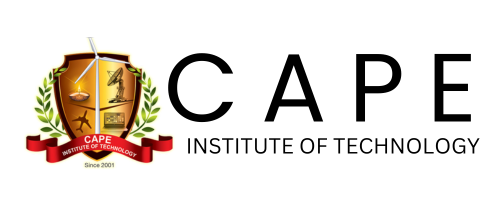GUIDELINES AND CODE OF ETHICS FOR RESPONSIBLE CONDUCT OF RESEARCH
The Code of Ethics in Research applies to all members of the institution, thus the principles are stated broadly in order to apply to all scholars in various disciplines using various methods of inquiry, and their specific application may vary with the context of the Researcher.
Research Integrity
- Code of Ethical Practice in Research policy sets out required standards of all our Researchers integrity expected of all our Researchers. It includes the Research ethic review process and the areas of Research to which they apply.
- The Research Head who acts as the point of contact for questions about Research Ethics and integrity. And provides necessary advice and guidance on an individual basis, which may include training workshops and/or seminars.
- Ensuring that Research is conducted according to appropriate ethical, legal and professional frame woks, obligations and standards.
- The institution level Research Ethics and Governance committee regulates and monitors the work of Research.
- In order to support the development of Researchers, learning, training and monitoring opportunities are provided.
- The Research Department provides training for scholars in Research Ethics review process when and where necessary.
General Instructions
- One ethics committee has been formed comprising of all PhD holders of the institute to assess the faculty researcher / PhD student / PG student who produce their work in the form of Research Publication / Research Proposal / Thesis Work (PG)/ Project Report.
- Especially the research work of the faculty / PG student in the form of journal paper / projects must go through the process of plagiarism and has to maintain high academic and production standards.
- Apart from this, the committee takes extra measures to ensure that the work is at par with the national/international standards.
- Any violation of the rule and other issue, complaints regarding plagiarism attracts disciplinary action to be imposed by committee within one month from the day of complaint. Depending on the severity of plagiarism, the committee will submit the report and recommendation on disciplinary action to be imposed.
- The Committee comprises
- Principal
- HOD of Respective Department
- Project Guide
Plagiarism Checker Software
Knowledge infringement and literary theft are some of the unhealthy practices in research areas across the world. In particular, plagiarism is a main problem among the academic community. In order to ensure the high level of ethical standards in research and other academic activities, the code of ethics for research work, project and other academic activities has been practiced at Cape Institute of Technology affiliated under Anna University, Chennai.
All scholars of Cape Institute of Technology are required to maintain the highest standards of morality, truthfulness and professionalism with respect to their study such as research or project undertaken by them. All scholars are encouraged to submit their original work in the case of projects and thesis. No compromise on plagiarism and claiming others work as one’s own work is not at all permitted.
Plagiarism and falsification of involvement or authorship lead to a failure to adhere to meet ethical standards and integral practices. Such unfair actions at the doctoral levels would amount to downgrading of assessment, mandates to re-do and directions for resubmission.
All research scholars enrolled in recognized research centres of Cape Institute of Technology by Anna University, Chennai are required to submit their published paper, synopsis and thesis for plagiarism check through URKUND plagiarism check software which has been made available to the entire recognized Supervisor by Anna University Chennai.
College Campus
04652 - 268 077
Ex-Officio Members
- Mr.I.Krishna Pillai, Founder Chairman
- Mrs.N. Vallikumari, Chairman
- Mr. K .V .Iyappa Kart hick, Pro Chairman
- Dr. T.K.Nagendran, Director
Members Secretary
- Dr.B. Thanu Kumari, Principal
Social Links
Admission Helplines
North India:
+91 9643383704
Download
Levengipuram (near Anjugramam),
Rajakrishnapuram P.O,
Thirunelveli dist – 627114
